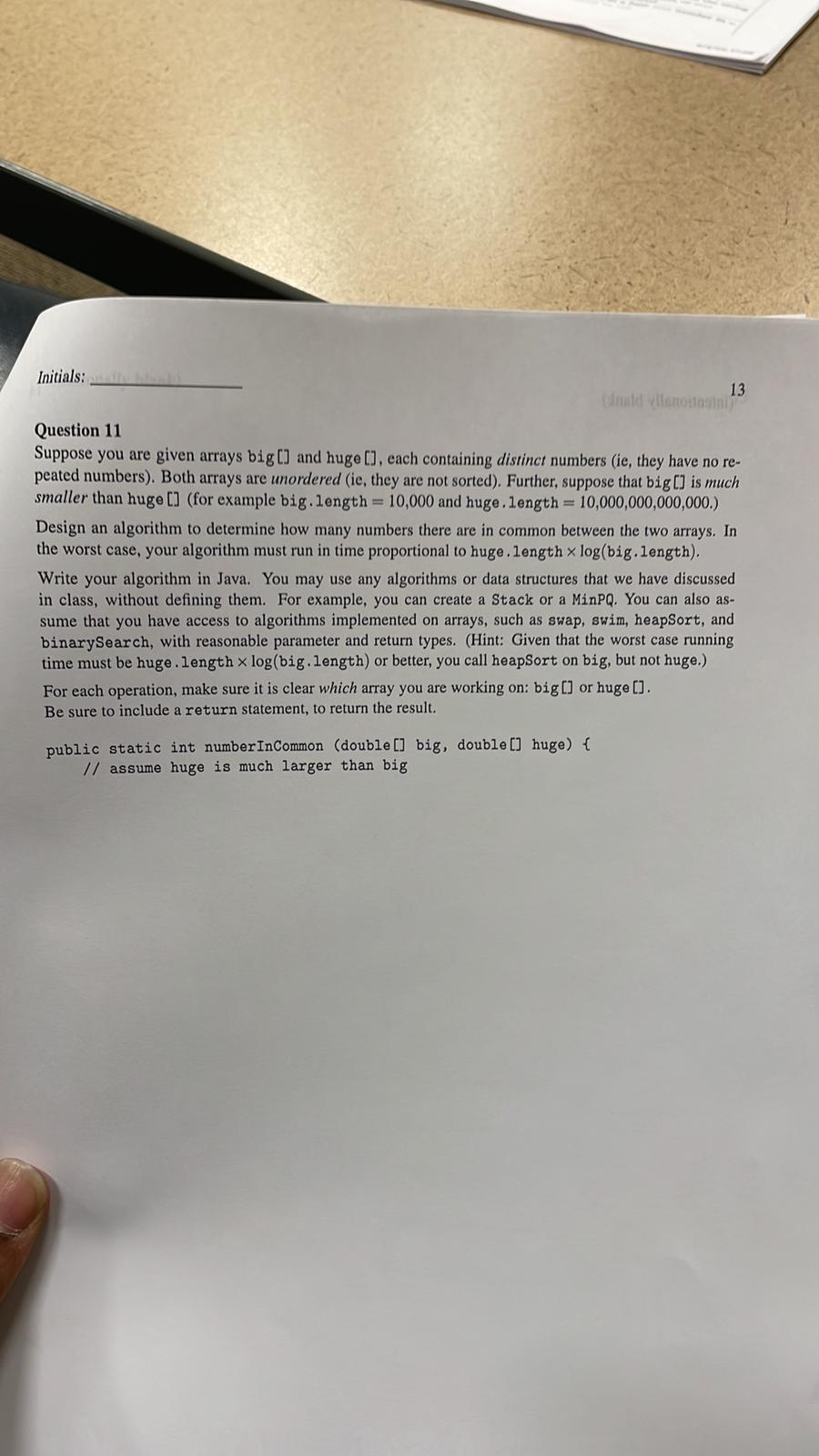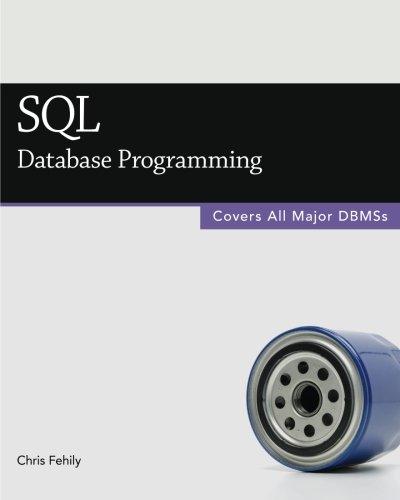Answered step by step
Verified Expert Solution
Question
1 Approved Answer
Question 1 1 Suppose you are given arrays big [ ] and huge [ ] , each containing distinct numbers ( ie , they have
Question
Suppose you are given arrays big and huge each containing distinct numbers ie they have no re
peated numbers Both arrays are unordered ie they are not sorted Further, suppose that big is much
smaller than huge for example big. length and huge length
Design an algorithm to determine how many numbers there are in common between the two arrays. In
the worst case, your algorithm must run in time proportional to huge. big.length
Write your algorithm in Java. You may use any algorithms or data structures that we have discussed
in class, without defining them. For example, you can create a Stack or a MinPQ. You can also as
sume that you have access to algorithms implemented on arrays, such as swap, swim, heapSort, and
binarySearch, with reasonable parameter and return types. Hint: Given that the worst case running
time must be huge. length big length or better, you call heapSort on big, but not huge.
For each operation, make sure it is clear which array you are working on: big or huge
Be sure to include a return statement, to return the result.

Step by Step Solution
There are 3 Steps involved in it
Step: 1

Get Instant Access to Expert-Tailored Solutions
See step-by-step solutions with expert insights and AI powered tools for academic success
Step: 2

Step: 3

Ace Your Homework with AI
Get the answers you need in no time with our AI-driven, step-by-step assistance
Get Started


